The AMD Radeon RX 5600 XT Review, Feat. Sapphire Pulse: A New Challenger For Mainstream Gaming
by Ryan Smith on January 21, 2020 9:01 AM ESTSynthetics
Moving on, we have our synthetic performance testing, taking a look at geometry throughput, pixel throughput, memory compression, and more.
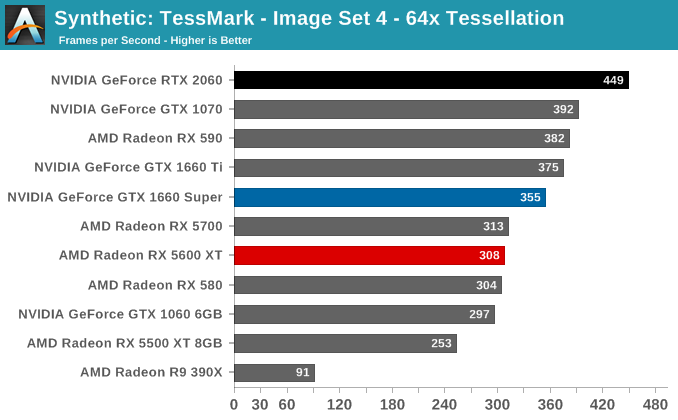
Given the significance of cutting a quarter of Navi 10’s GDDR6 memory bus, I was very curious to see what that would do for synthetic performance. But for better or worse, this has created more questions than it has solved.
The numbers listed below are accurate, in as much as these are the results I get when testing these cards. Whether they are correct, however, is another matter.
The problem, in short, is that due to AMD’s very aggressive power savings/idling implementation for their Navi 10 cards, I have been unable to get these cards to run at their full memory clockspeeds when executing the the Beyond3D Suite benchmark suite. The GPU clocks regularly pass 1600MHz like they should, however AMD’s telemetry is reporting that memory clocks are rarely hitting 7Gbps, let alone 12Gbps+. As a result, we end up with results like the pixel test below, where the RX 5600 XT is beating the RX 5700, an otherwise impossible outcome.
As best as I can tell, this issue has been going on since the launch of the Radeon RX 5700 series back in July, but it’s only now that I’ve noticed it, in large part due to the RX 5600 XT cards being slightly less aggressive in their idling. In other words, those cards are boosting to higher memory clockspeeds more often, putting them ahead of the RX 5700 and bringing the clocking issue front and center.
I’m still working on a proper fix for the issue, but for now the results with Navi 10 cards should be taken with a large grain of salt. The benchmark itself is still fine, but AMD’s aggressive power management (and lack of an easy means to disable it) is kneecapping AMD’s performance in these benchmarks.
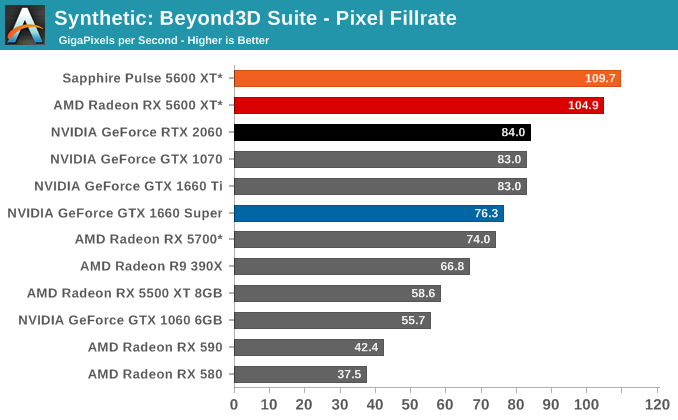
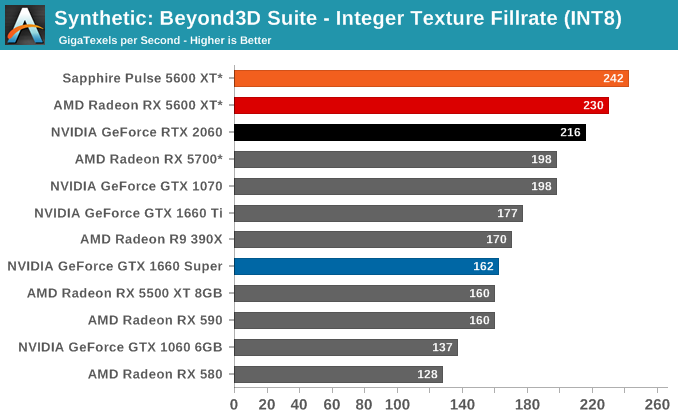
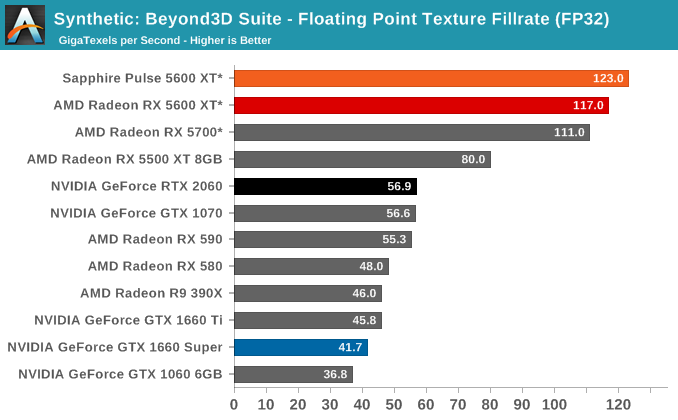
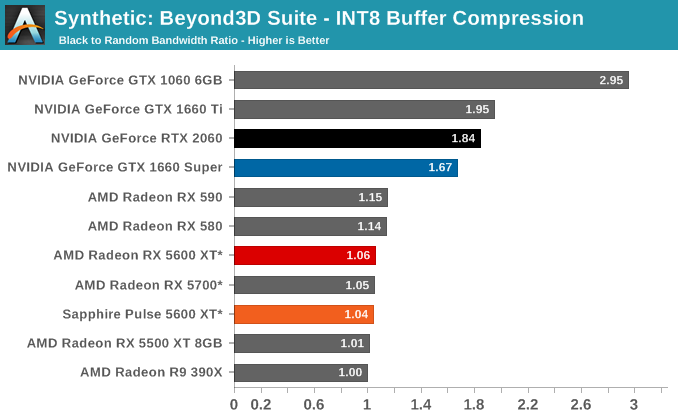
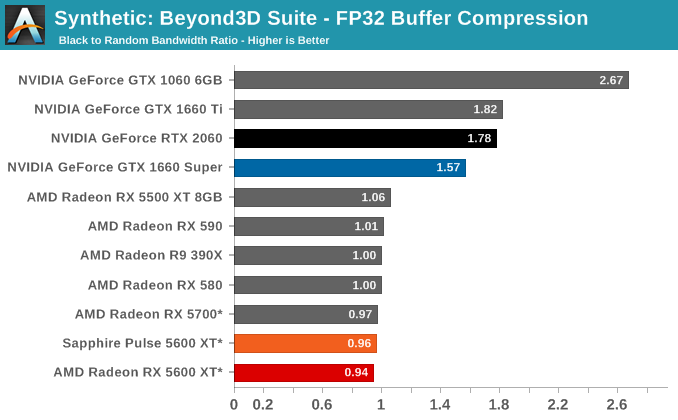










202 Comments
View All Comments
Rudde - Tuesday, January 21, 2020 - link
"Radeon RX 5600 XT needs to be fast enough to justify its price premium over the GTX 1660 Ti, and close enough to the RTX 2060 to overcome [snip]"Shouldn't this read "price premium over the GTX 1660 super?"
Ryan Smith - Tuesday, January 21, 2020 - link
Yes. Thanks!Dragonstongue - Tuesday, January 21, 2020 - link
if they would have set at $279 "concrete" would be great, sadly they seemed to have not chose to do so.Fine if you are USD not so much if anywhere else.Life is pricey enough T_T
GreenMeters - Tuesday, January 21, 2020 - link
Great article, really looking forward to this card for a moderately powerful but very quiet Linux work & gaming box. Though apparently I need to wait a little bit, as the vBIOS flash has messed up something with HW acceleration on Linux.On the Power, Temperature & Noise page, there's a "quitter" that s/b "quieter". There's also an "Unaspiringly" there that potentially makes sense and is what was intended, but perhaps was meant to be an "Unsurprisingly" or similar.
Ryan Smith - Tuesday, January 21, 2020 - link
Thanks!eastcoast_pete - Tuesday, January 21, 2020 - link
@ Ryan, Thanks, and good for Team Red! Any rumors about NVIDIA trying that trick, too, by pushing the 2060 a bit harder with a "BIOS update" over the next days and weeks? Thermally, there seems to be some room there, too.jabber - Tuesday, January 21, 2020 - link
So go from 8GB to 6GB? Nope. I'll wait till September...sorten - Tuesday, January 21, 2020 - link
Impressive showing for AMD here. I bought the 1660Ti a year ago and I'm very happy with it, but if I were shopping today I would probably go with the 5600XT.It uses a bit more power to deliver the better performance, but not as much as I was expecting.
DanNeely - Tuesday, January 21, 2020 - link
RE the compute problems, with the 20.1.1 driver SETI's most recent beta application is being reported to work. Einstien@Home's Fermi (telescope) application is working with that driver without needing any application updates; so AMD is finally making some progress with getting OpenCL working again.https://einsteinathome.org/content/all-things-navi...
Ryan Smith - Tuesday, January 21, 2020 - link
Very interesting.Though given all the other OpenCL software that still falls flat on its face, I would still caution against trusting AMD's current OpenCL drivers for any kind of production use, even if it appeared to be working in that one application.